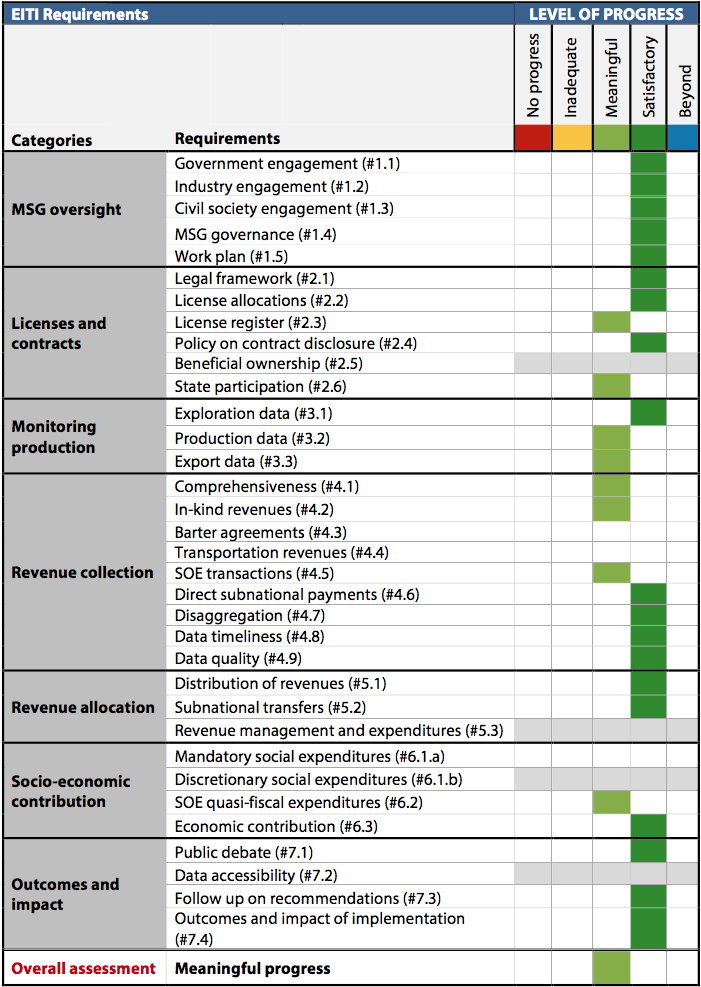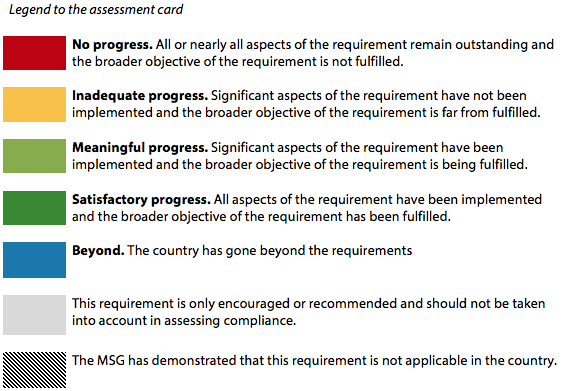
EITI Board recognises Ghana’s efforts to improve natural resource governance
EITI Board recognises Ghana’s efforts to improve natural resource governance
The country achieves meaningful progress in meeting global transparency standard.
Wednesday 8 March 2017 – At its meeting in Bogotá, Colombia, the EITI Board declared that Ghana has made meaningful progress in implementing the Standard. In doing so, it recognises Ghana’s efforts to improve natural resource governance through the EITI.
The EITI Board’s decision comes almost one year after Ghana received the 2016 EITI Chair’s Award at the EITI Global Conference in Lima, Peru, in recognition of the country’s efforts to turn policy recommendations into actionable reforms. The Validation exercise shows that the EITI in Ghana has, among other things, led to increased ground rents from mining, harmonisation of mineral royalty rates, introduction of capital gains tax and ring-fencing of costs in the petroleum sector, and improved transparency and management of subnational transfers from mining.
Reflecting on the impact of EITI implementation in Ghana, Chair of the EITI Board Fredrik Reinfeldt said:
“I am impressed with how Ghana has used the EITI as a tool to achieve tangible improvements in how it manages its natural resources”.
The EITI Board made its decision following a review of Ghana’s EITI Validation Report and other supporting documentation, including comments from Ghanaian stakeholders.
This is the first time that Ghana undergoes Validation under the EITI Standard. Validation is the EITI's quality assurance mechanism and measures the progress countries have made in meeting the requirements of the EITI Standard.
Concrete achievements, but more work needed in a number of areas
Although the Government of Ghana has taken concrete steps to address all the requirements in the EITI Standard, some areas will continue to require additional attention from the Ghana EITI National Steering Committee (NSC).
Corrective actions identified by the Board included the publication of license registers, information on state participation in the sector and their social payments, production and export data, and full coverage of companies.
Ghana now has until 8 March 2018 to implement corrective actions addressing the EITI Board’s concerns, when a second Validation is scheduled to commence.
Validation scorecard


Notes
- The EITI is a coalition of governments, companies, civil society groups, investors and international organisations. Learn more at eiti.org.
- EITI is chaired by Fredrik Reinfeldt. Mr Reinfeldt was the Prime Minister of Sweden (2006-2014).
- 51 countries are members of the EITI. No country has yet made satisfactory progress with the 2016 EITI Standard. See the list of countries at www.eiti.org/countries.
- Validation is the EITI’s independent evaluation mechanism. It assesses countries against progress made in meeting the 2016 Standard.
- The Board decision in full, including corrective actions and impact of the EITI in the country, can be found here: eiti.org/validation/ghana/2016
- The reports giving an extensive review of Ghana’s extractive sector can be found here: https://eiti.org/document/validation-ghana-2016-documentation
- The Board has taken decisions on the status of five more countries on 8 March 2017: https://eiti.org/document/validation-schedule-decisions
- See here for a full explanation of the various levels of progress under the EITI Standard.
For further information about the EITI in Ghana, please visit the country page on the EITI website and the national EITI website.
Contenu connexe





